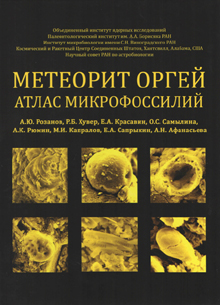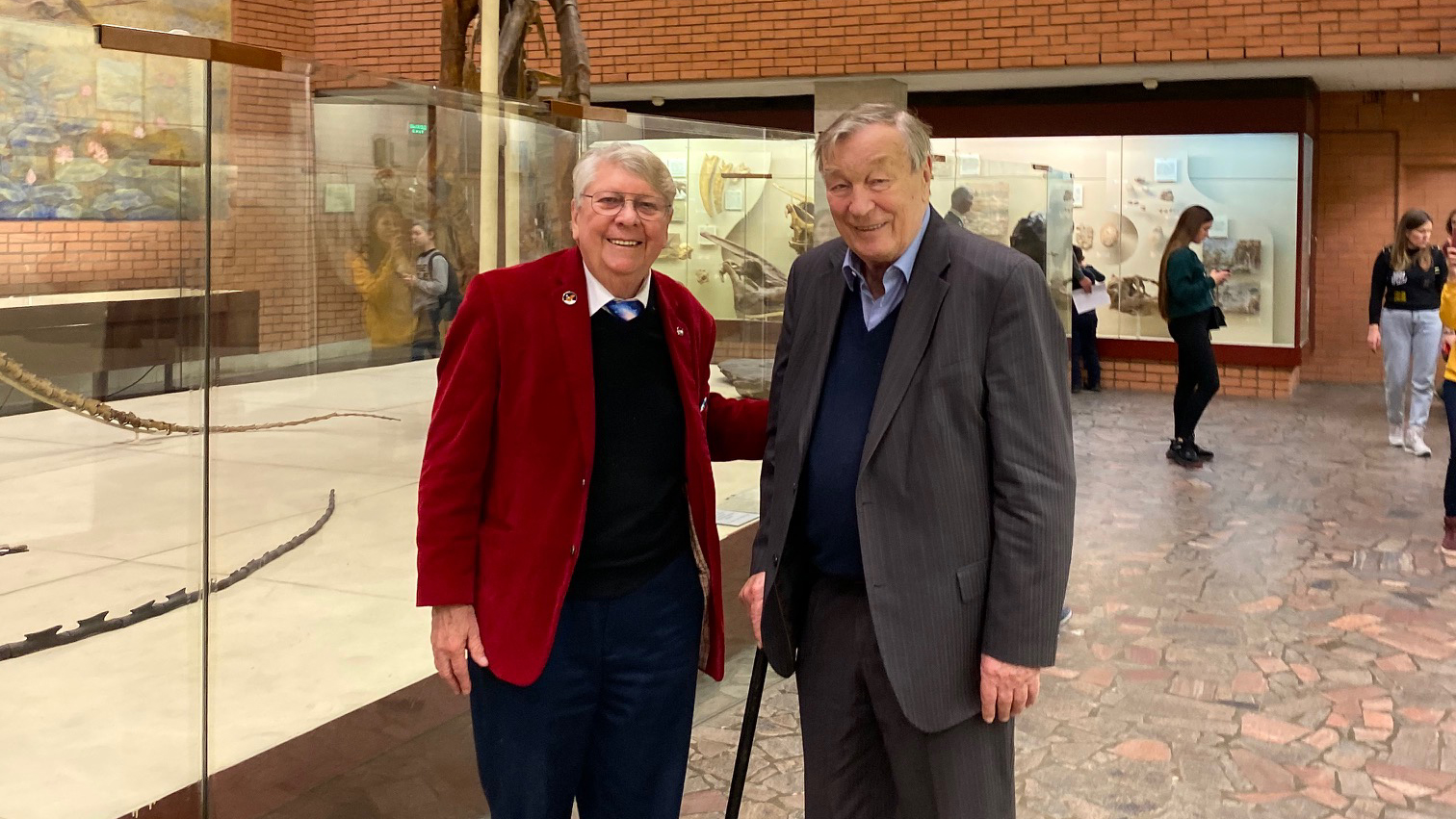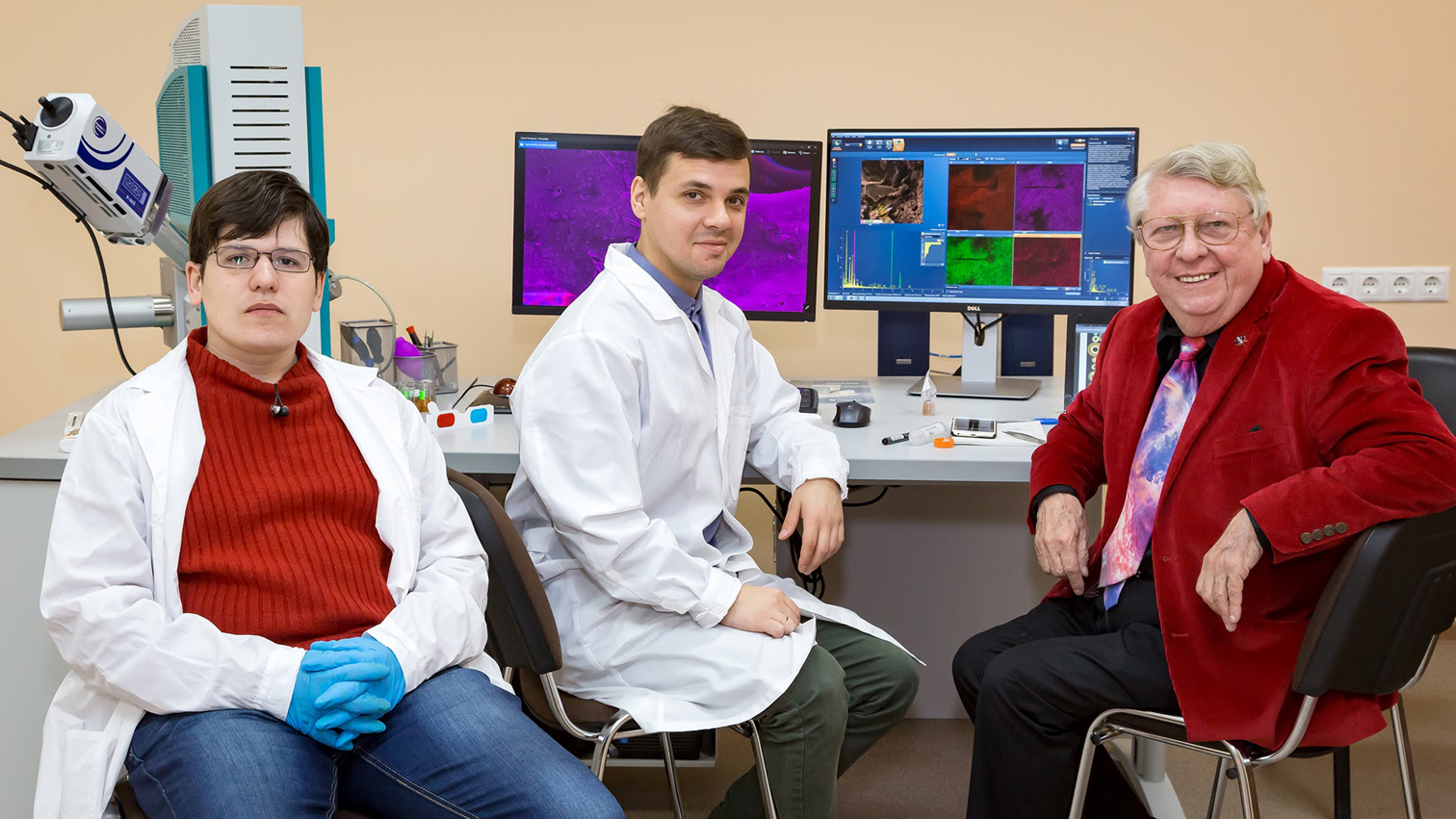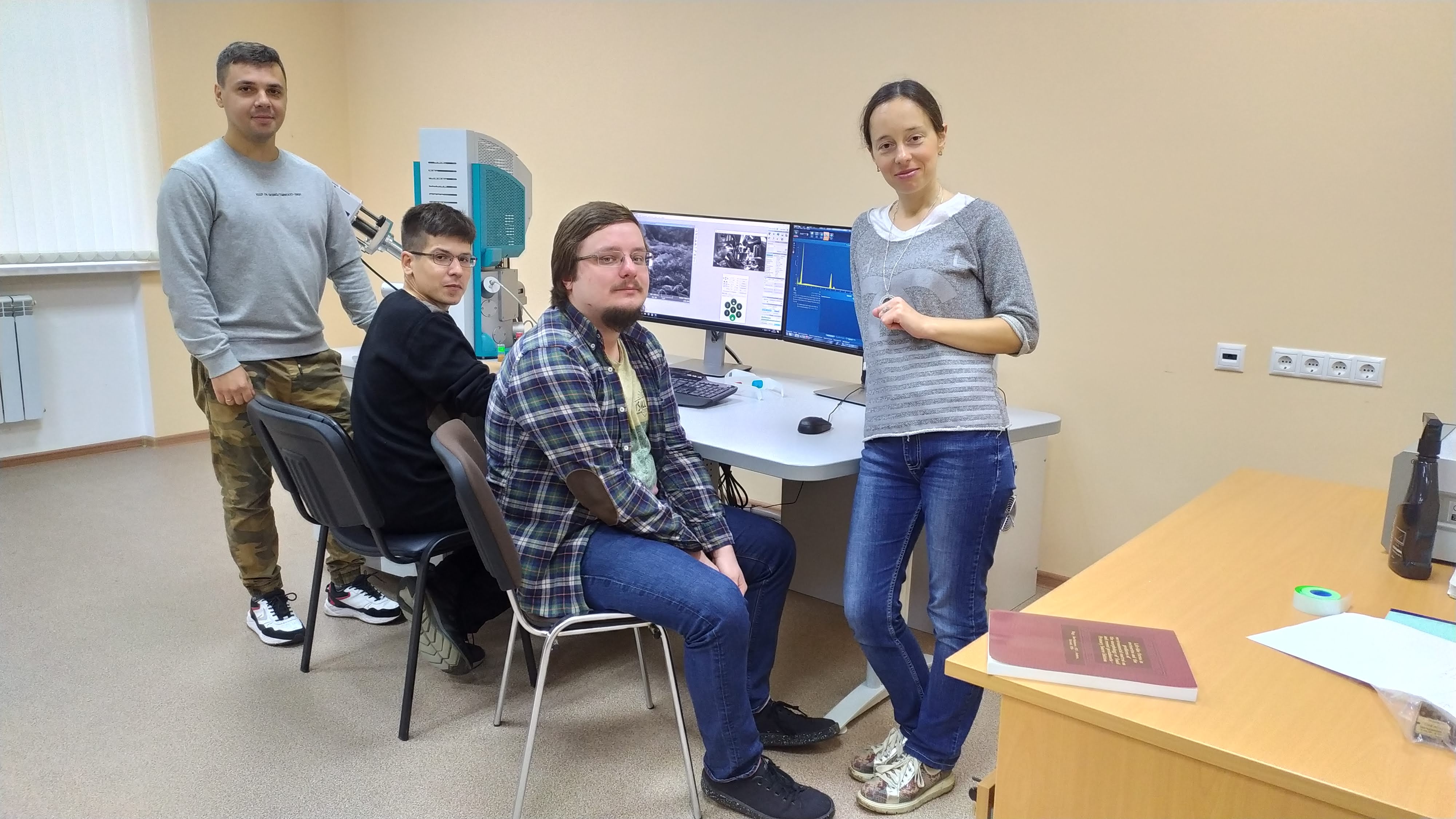Monograph “The Orgueil Meteorite Microfossil Atlas” published
Publications, 16 February 2021
A team of authors represented by A. Yu. Rozanov, R. B. Hoover, E. A. Krasavin, O. S. Samyilina, A. K. Ryumin, M. I. Kapralov, E. A. Saprykin, A. N. Afanasyieva from the Laboratory of Radiation Biology JINR, the Paleontological Institute of the Russian Academy of Sciences RAS, Vinogradsky Institute of Microbiology RAS, and the United States Space and Rocket Center (Huntsville, the U.S.) published the monograph “The Orgueil Meteorite Microfossil Atlas.”
 The book deals with the unique findings in the well-studied carbonaceous chondrite, which fell in 1864 in France near the village of Orgueil. Most of the fossilized microorganisms (microfossils) included in the Atlas were found by the LRB’s scientists using a Tescan Vega 3 scanning electron microscope. Identified were, in particular, prokaryotes (including coccoids, rod-likes, and filamentous forms) and eukaryotes (pinnate diatoms and prasinophytes). Also found were acritarchs, alveolates, testate amoebas, and, probably, even spores of algae or fungi. The monograph also considers some aspects of the transfer of life in space (the theory of panspermia), as well as the diversity of microfossils in carbonaceous chondrites and the problem of contamination.
The book deals with the unique findings in the well-studied carbonaceous chondrite, which fell in 1864 in France near the village of Orgueil. Most of the fossilized microorganisms (microfossils) included in the Atlas were found by the LRB’s scientists using a Tescan Vega 3 scanning electron microscope. Identified were, in particular, prokaryotes (including coccoids, rod-likes, and filamentous forms) and eukaryotes (pinnate diatoms and prasinophytes). Also found were acritarchs, alveolates, testate amoebas, and, probably, even spores of algae or fungi. The monograph also considers some aspects of the transfer of life in space (the theory of panspermia), as well as the diversity of microfossils in carbonaceous chondrites and the problem of contamination.


